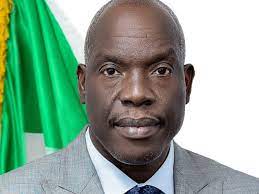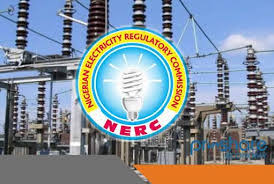The Nigerian Upstream Petroleum Regulatory Commission (NUPRC) has reported that the country’s total annual upstream capital expenditure (CAPEX) decreased from $27 billion in 2014 to less than $6 billion in 2022.
The Chief Executive Officer of the commission, Mr Gbenga Komolafe, who made this disclosure on the sidelines of the World Petroleum Congress (WPC) in Calgary, Canada, said the figure represented a 74% decline in CAPEX within the decade
Represented at the event by the Executive Commissioner, Mr Kelechi Ofoegbu, the NUPRC’s boss primarily linked the decline in CAPEX to several factors, especially regulatory uncertainty which negatively impacted on the investment in Nigeria’s oil and gas industry.
Other factors he identified as discouraging investments in the nation’s upstream sector of the hydrocarbon resources industry include the under-funding of fossil fuel production due to the current energy transition drive and the global call for de-carbonization of the environment.
According to the industry expert, many Banking, Revenu de-prioritised Nigeria in their investment portfolios and moved them to other countries with the attendant negative implications for the development of the industry.
He clarified: “This under-investment impacted negatively on the country’s rig count. On average, Nigeria had 17 active oil rigs in 2019 representing one of the highest counts in the African continent as at then.
“The average rig count declined to 11 in 2020, seven in 2021, 10 in 2022, but recently grew to as high as 31 by August 2023, a positive signal of new investments trickling into the country.
“The relatively high crude oil prices may also be attributed to the increase in activities in the petroleum upstream sector.
“We also see this as a reflection of investors’ acceptance of the PIA and its effective implementation by the regulator.
“The projected outlook over the next few years looks promising, and as the regulator in the oil and gas upstream sector, we will leverage on this opportunity by doing all that is necessary to attract more investments and revamp the Nigerian upstream sector”, Komolafe added.
Komolafe pointed out that the period was prior to the enactment of the Petroleum Industry Act (PIA) 2022, also affected investment in the industry.
However, the NUPRC boss maintained that the PIA had repositioned the Nigerian petroleum sector for improved investments through its provisions, which created efficient and effective governing institutions, with clear and separate roles for the industry, thereby creating an enabling transparency, accountability environment for investments in the hydrocarbon resources industry.
Specifically, he clarified that since the enactment of the PIA, the Commission had developed 24 priority regulations to facilitate effective implementation of the PIA.
Komolafe also spoke on the current efforts of the commission on energy transition and canvassed the need for oil and gas stakeholders to embrace the reality of green transition and take strategic positions to leverage the opportunities presented by the unfolding era.
He expatiated: “With Nigeria’s huge gas reserves of 208.83 TCF and a potential for an increase to about 220 TCF within the next 10 years, Nigeria has adopted natural gas as our transition fuel in our stride at developing cleaner fuels and staying on track with our net zero emission commitment of 2050.
“Unfolding events have equally shown that natural gas is our destination fuel, with a projection that gas will form a significant part of the energy mix for Nigeria by year 2030 and beyond.
“In recognition of this, the government has designed the Decade of Gas programme to ensure that gas actually plays a role to lift us from the challenges that confront us in order to drive industrial development,” Komolafe explained.
Earlier in his paper, the Chief Upstream Investment Officer, the NNPCL Upstream Investment Management Services (NUIMS), Mr Bala Wunti, explained that meeting the net zero gas emission target would require improvements in the enabling environment, strong project preparation and tapping different sources of finance in a coordinated manner within the context of each country’s development
In his paper presentation titled “Decarbonising Nigeria’s Oil and Gas”, the industry expert who was represented by the Asset Manager, Group PSC (Production Sharing Contract), NUIMS NNPC Ltd., Mr Justus Derefaka, maintained that achieving a net-zero emissions required huge investments, adding that for Nigeria to achieve the target gas use for power will need to increase to meet rising electricity demand until 2030.
He stressed: “Delivering Nigeria’s current NDC requires strong gas uptake across the economy, including 80 per cent of cars being powered by Compressed Natural Gas (CNG) and 50 per cent of the population using Liquefied Petroleum Gas(LPG) for cooking by 2050.”




